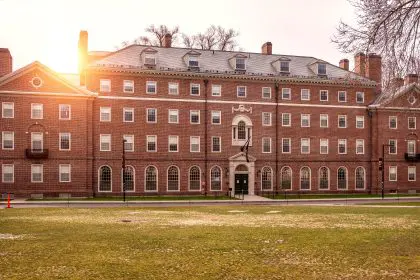 |
|
photo by steed media service
|
After
four years of late-night study sessions, endless tests and
unforgettable parties, college graduation marks the beginning of a new
stage in life. But while the impulse to celebrate this important
achievement is overpowering, the realization of college debt looming
over oneÕs financial future can be overwhelming.
Over the years, college tuition has increased across the nation and
caused students to have to take out larger loans. According to Science
Daily student loans have become an 85-million-dollar industry. But as
recent graduates search for their dream jobs, they shouldnÕt allow the
pressures of loan repayment to become a crushing burden.
Depending upon the loan, students usually have a six- to nine-month
grace period before they have to begin repaying the loan. During this
period, recent graduates should consolidate their loans in order to
lock in a low fixed rate. They should also begin to properly organize
their finances so theyÕll be prepared make payments when the grace
period is over. The Sallie Mae Stafford Loan allows students a
six-month grace period after graduation, while the Federal Perkins Loan
gives students nine months. Even if recent graduates are not prepared
to begin repayment after the grace period, they can defer their loans
up to a maximum of five years.
Students can also go into forbearance. This allows students a period in
which they do not have to pay, or to make a payment for less than the
repayment amount. However, the loan still accrues interest during
forbearance.
Although repaying student loans can be a hassle, it’s a necessary step
in getting physically fit. Your loan issuers know who and where you to
find you. So running is not an option.
– amir shaw










